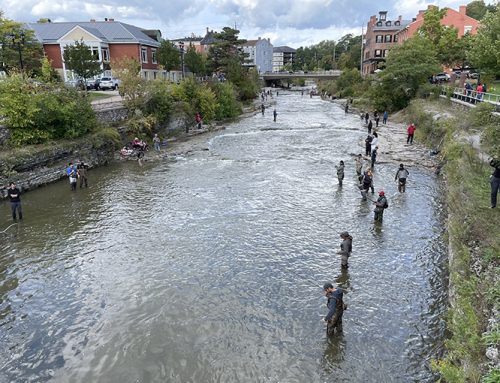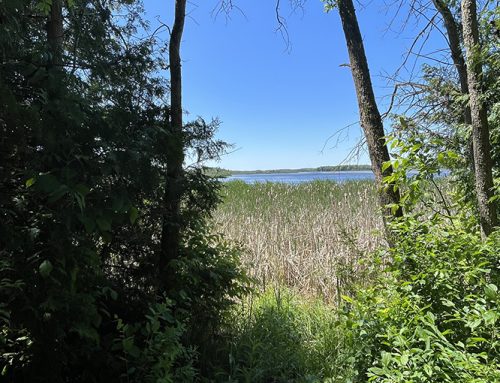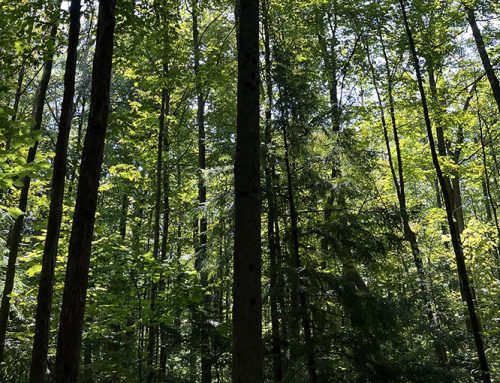
The spring bear hunt will continue as a regular annual hunting season, subject to annual review, as part of a proposal announced Friday, Jan. 17 by Ministry of Natural Resources and Forestry (MNRF) Minister John Yakabuski.
The current pilot project confirmed the spring bear hunt is “more than sustainable,” Yakabuski said during an announcement at the Ontario Federation of Anglers and Hunters (OFAH) Mario Cortellucci Hunting and Fishing Heritage Centre in Peterborough.
The pilot was introduced in 2014 to address northern Ontario municipalities’ nuisance bear concerns before being extended for five years in 2016. The hunt was cancelled by the ministry in 1999 amidst pressure from animal rights activists.
Pilot well received
The effort has been well received by northern communities and the tourism and hunting industries in northern and rural Ontario, Yakabuski said.
The proposal to implement a regular season was recommended by the Big Game Management Advisory Committee (BGMAC), formed in spring of 2019 to advise the province on how to improve big game management in Ontario.
Existing protections will remain in place, the minister said, noting that it will remain illegal to harvest cubs, or sows with cubs, in the spring. The ministry will continue to monitor the bear population and hunt results through mandatory reporting.
OFAH applauds return
The move was applauded by the OFAH, which is calling on the outdoors community to voice its support of spring bear hunting with the government.
“We’re looking at 20 years of history here. The OFAH has been fighting for the return of the spring bear hunt since it was cancelled in 1999,” said OFAH Wildlife Biologist Dr. Keith Munro. “We’re always advocating for sound wildlife management in the province, and the regulated hunting of black bears is an important tool for the management of that species.”
The omnivores are an important part of the province’s biodiversity and hunting traditions, he said.
Some $13.8 million of the approximately $50.6 million in hunting-related purchases made by black hear hunters in 2017 was related to the spring hunt, Munro said.
Regulations to be updated
Black bear regulations would be updated as part of the proposal, including eliminating special black bear hunting opportunities for non-resident landowners and non-residents hunting with immediate relatives.
Those guiding resident black bear hunters for commercial purposes would also be required to obtain a “Licence to Provide Black Bear Hunting Services.”
The proposed changes are available for public feedback on the Environmental Registry of Ontario (ERO) until Feb. 18.
Uncertainty eliminated
Carson Hainer of Loring Bear Outfitters near Port Loring welcomed the news as it eliminates uncertainty for a business now booking clients into 2021.
“Now you know for sure you sold them something you can actually provide for them,” he said, adding that he hopes details like baiting restrictions will be further addressed.
Bear population consistent
The bear population remained consistent through the pilot project, Yakabuski said. There are between 85,000 and 105,000 in the province.
Some 25,000 tags were issued last year and between 5,000 and 6,000 bears harvested.
“The tracking and analyzing of the data confirms that we’re on the right track,” he said.
Yakabuski pointed out that the province is also eliminating the fall hunt in the Bruce Peninsula, where there is a stressed black bear population, and reducing the spring hunt to one week, to sustain the black bear population.






I am so very pleased to hear the good news.
I think it’s great that the spring bear hunt is back … It was a ridiculous political excuse to buy votes..!! I live in the north and the problem I still see is that I have to by a big game license to kill a bear but the farmer here can slaughter as many bears he want’s with no license and does not have to make any effort even to keep from spoiling them..!! All because for him they are just a varmint which makes it “OK”. This to me is just another government double standard. Is this a big game animal or just vermin??
There is a poll at the Toronto Star that needs to be addressed by all firearm owner/hunters. Have your say!
https://www.thestar.com/opinion/contributors/thebigdebate/2020/02/25/the-big-debate-should-there-be-a-spring-bear-hunt.html#yes